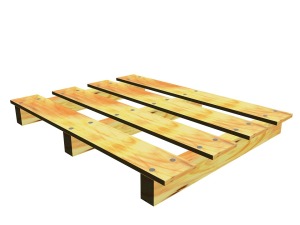Any warehousing operation will benefit from careful, strategic design and the right selection of equipment. While some who lack experience in the industry might assume that warehousing is fairly simple, that is never really the case. Even running a warehouse where storage requirements and turnover are low will always involve overcoming plenty of challenges, and the related difficulties multiply quickly as activity levels and other demands rise. Companies like Atlantic Rack that specialize in providing particularly suitable Pallet Rack Systems can make an enormously productive difference for their clients.
Most warehouses today rely heavily on pallets as a means of collecting and managing goods of various kinds. Whether relatively large, heavy products are simply stacked carefully on individual pallets or many smaller ones are shrink-wrapped to them in large batches, the pallet is the individual unit of handling and management in most warehouses today. Thinking about how best to lay out and equip a warehouse will therefore, in many cases, revolve around the requirements and particularities typical of these common, highly useful assets.

For just about every case, this will mean settling on at least one suitable style of pallet racks for a given warehouse. As can be seen online at atlanticrack, equipment like this comes in many different varieties and basic types, each of which brings its own particular blend of advantages to the table. Understanding the whole range of options and picking the most suitable one can therefore go a long way toward providing a warehouse with what it needs.
In some warehouses, for example, relatively simple, straightforward patterns of storage and removal will be the norm. Racks of correspondingly simple designs will often make good sense in such situations, with this simplicity tending to keep costs down while encouraging reliability and other attractive traits.
In other warehouses, on the other hand, more specific or unusual requirements will suggest that options of other kinds might make more sense. In some cases, for example, the first pallet to be stored on a given rack will need to be removed before all others, and racks that are designed to facilitate such access patterns could well be the best choices of all.
Other situations might entail that the space within a warehouse might need to be filled as completely as possible with usable storage, with especially high-density racks helping to achieve this goal. Understanding the needs associated with a particular warehousing operation from the start will therefore always help with the selection of the right kind of equipment.